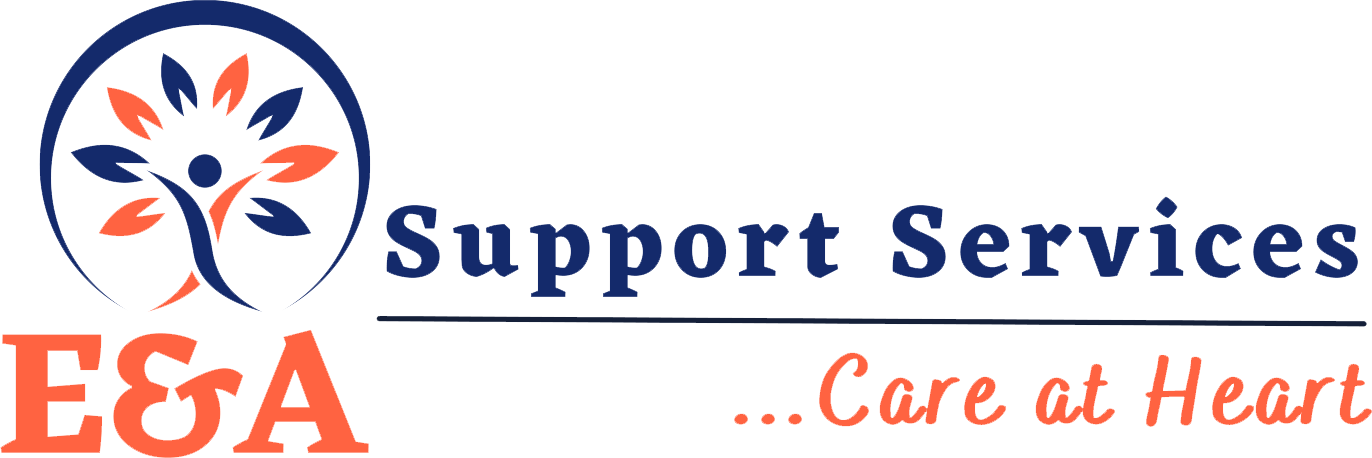
Quality NDIS Support Done Right
At E & A Support Services, we go the extra mile to help our participants in ways that really matter.
We adopt a holistic approach to care
We focus not just on the physical needs of our participants, but also upon their emotional wellbeing and overall quality of life. It's through our own belief in our participants, and their capabilities, that we endeavour to encourage broader social interaction and foster community participation. Through this approach, we aim to build meaningful interpersonal relationships with our participants, and in time, kindle within them a genuine sense of community belonging.
Our NDIS Support Services
Community Nursing
E & A provides highly-skilled Registered Community Nurses who are capable of a range of in-home nursing services that can assist in supporting a better quality of life for you. Our professional nursing support for NDIS participants includes complex care such as:
High Intensity Support
Complex Bowel Care
EA Support Services can provide complex bowel care to participants at risk of severe constipation or faecal incontinence, for example, CP GMFCS1 levels 3,4,5; spinal injuries; some ABI and where the bowel care plan involves non-routine treatment such as the use of non-routine PRNs. We have highly competent Registered Nurses who have received training on:
A detailed care plan will be established while developing a service agreement. Our nurses will follow the care plan, observe and record changes in bowel habits, administer laxatives, enemas or suppositories according to procedure and identify when to seek health practitioner advice.
Enteral Feeding and Management
Supporting a person who is reliant on percutaneous endoscopic gastrostomy (PEG) feeding can be part of a Registered Nurse's role. A person reliant on NG feeding typically has more complex health issues requiring high-intensity support. We will establish a detailed care plan while developing the service agreement. Our Registered Nurse will:
Tracheostomy Care
Our Registered Nurses have advanced skills in the provision of tracheostomy care. They are fully trained and have demonstrated competency to support a person dependent on ventilation. Our nurses will:
Ventilation Care
Once the need for ventilation is confirmed in the participant’s care plan, we will assign fully-trained Registered Nurses to the participant and will:
We can provide care to participants who have a tracheostomy and use a ventilator, or to participants who require ventilation but don't have a tracheostomy. We provide either invasive or non-invasive ventilation.
Urinary Catheter Care
Our Registered Nurses who care for participants with urinary catheters (IDC and SPC) have received training and are experienced in:
Our quality catheter care includes replacing and disposing of catheter bags; maintaining charts / records; monitoring skin conditions around catheters; recognising and responding / reporting on blockages, dislodged catheters and signs of deteriorating health or infection.
Complex Wound Management
E & A Support Services Registered Nurses can provide complex wound care and are fully-trained and experienced in:
As a result, we can recognise risks and symptoms of pressure; identify when to refer to a health practitioner and follow plan instructions to inspect / replace dressings (under health practitioner supervision and only when indicated in the wound management plan).
Subcutaneous Injections and Diabetes Management
We provide subcutaneous injections for medication administration (including but not limited to insulin, Erythropoietin Morphine, Diacetylmorphine and Clexane) and diabetes care support to participants with a care plan enlisting management of subcutaneous injections and medication administration. Registered Nurses deployed to support participants with diabetes and subcutaneous injection needs are required to attend compulsory training and be deemed competent in subcutaneous injection and diabetes management support provision. Safe and quality care will be guaranteed by:



